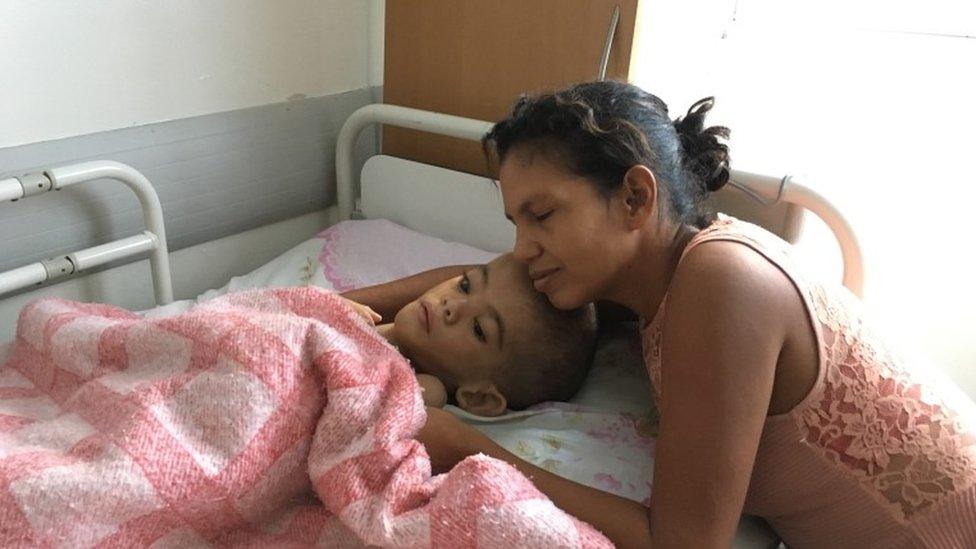Venezuela political foes 'to hold talks' in surprise move
- Published
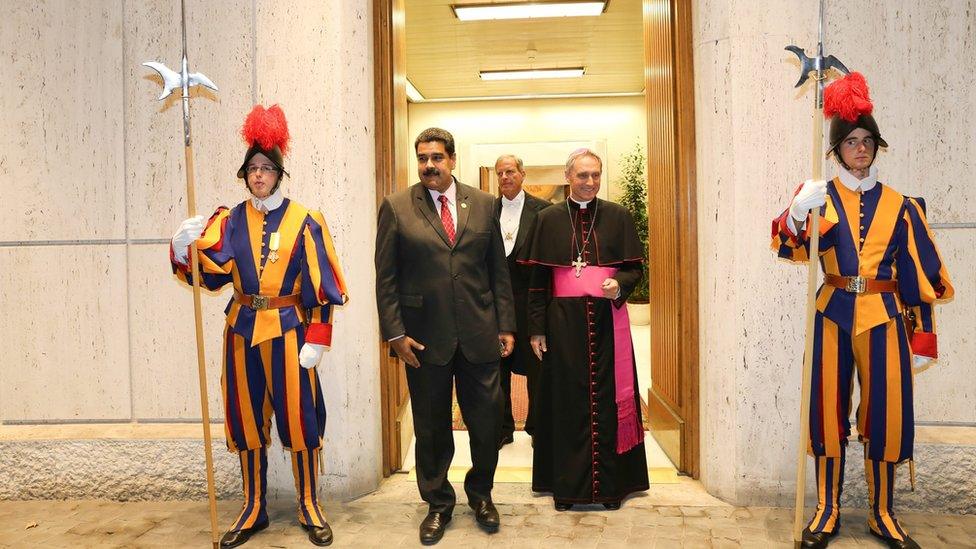
The announcement came after Venezuelan President Nicolas Maduro visited the Vatican
Venezuela's government and its opposition are to meet for crisis talks, the Vatican says, after an intervention from Pope Francis.
Protests have been held in recent days over the suspension of a referendum process seeking to remove President Nicolas Maduro.
The surprise move came after Mr Maduro met Pope Francis in an unannounced visit.
The Vatican and regional bloc Unasur will mediate in the talks.
Pope Francis "urged [the parties] to show courage in pursuing the path of sincere and constructive dialogue", the Vatican said in a statement.
After meeting representatives from both sides, the Vatican's envoy to Argentina, Emil Paul Tscherrig, said "a national dialogue" had already started.
He said they had agreed to formal talks on Sunday on Margarita island in the Caribbean.
Mr Maduro said "at last" dialogue could begin.
The head of the opposition coalition, Jesus Torrealba, who met Mr Tscherrig, said while talks were important "it can't continue to be a strategy for the government to win time".
Another top opposition figure, Henrique Capriles, dismissed the announcement as a diversionary ploy. "No dialogue has begun in Venezuela," he said.
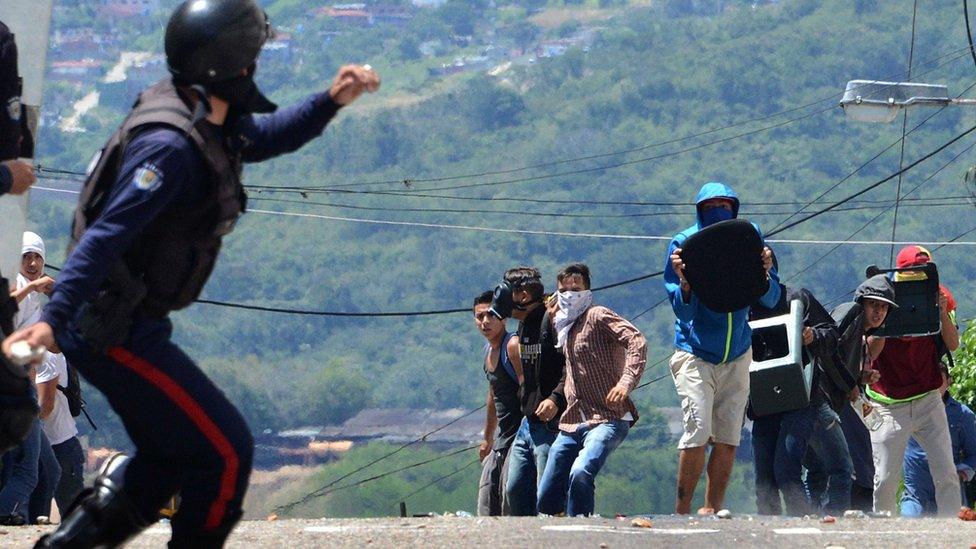
Students protested against Mr Maduro in San Cristobal on Monday
Mr Maduro, a former bus driver and union leader, is blamed by the opposition for Venezuela's dire economic situation. The oil-rich country is facing widespread food shortages and spiralling inflation.
The opposition is trying to hold a recall referendum that would allow Mr Maduro to be removed from office but electoral authorities suspended the process last week.
The official reason was allegations of fraud during the gathering of signatures for the first petition required to enable the referendum.
However, opposition lawmakers have long accused the National Electoral Council of being under the government's control.

Hoping for a miracle, by Daniel Garcia Marco, BBC News, Caracas
The suspension of the process to remove President Maduro appears to have been a turning point in Venezuela's political crisis. Since last week's announcement things have got more and more tense.
Both sides accuse the other of mounting a coup. Sunday saw dozens of government supporters burst into the National Assembly.
Amid this backdrop both parties have agreed to start negotiations with the mediation of the Vatican.
The first Latin American pope seems to be very engaged with Venezuela's crisis. The Vatican is respected by both sides and Pope Francis has proven a successful mediator before, helping restart diplomatic relations between Cuba and USA.
But the question remains: can these talks be successful? We don't know anything yet about the issues that will be on the table, and the differences appear huge.
The red line for the opposition is the recall referendum. The government says that the main topic should be the economy. Right now an agreement seems to be a miracle. But the Vatican is working on it.

In an emergency session of the National Assembly on Sunday, they approved a resolution accusing Mr Maduro's Socialist government of engaging in "an ongoing coup d'etat".
The Organization of American States also said it was "profoundly worried" by the electoral authorities' decision.
Hundreds of students protested on Monday in San Cristobal, a city near the Colombian border. Nationwide protests are planned for Wednesday.
Mr Maduro has accused the opposition of having links to foreign states, the US in particular, and of seeking to overthrow him to "lay their hands on Venezuela's oil riches".
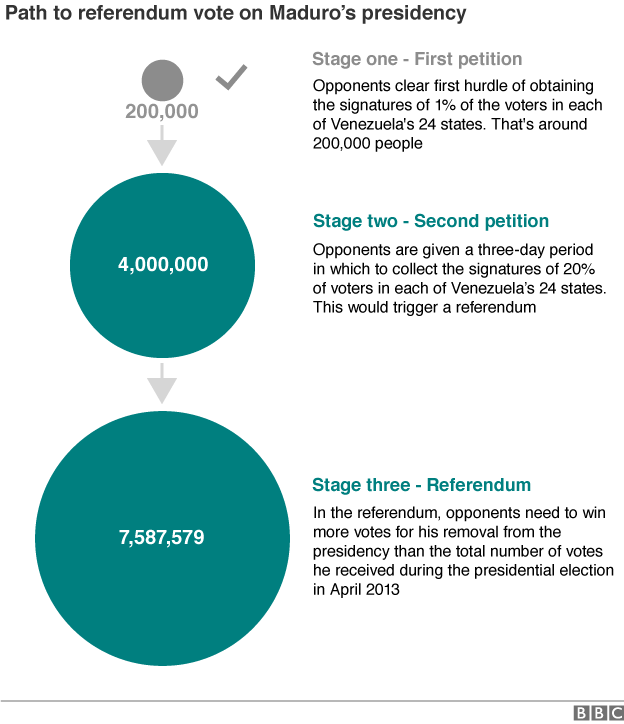
- Published23 October 2016
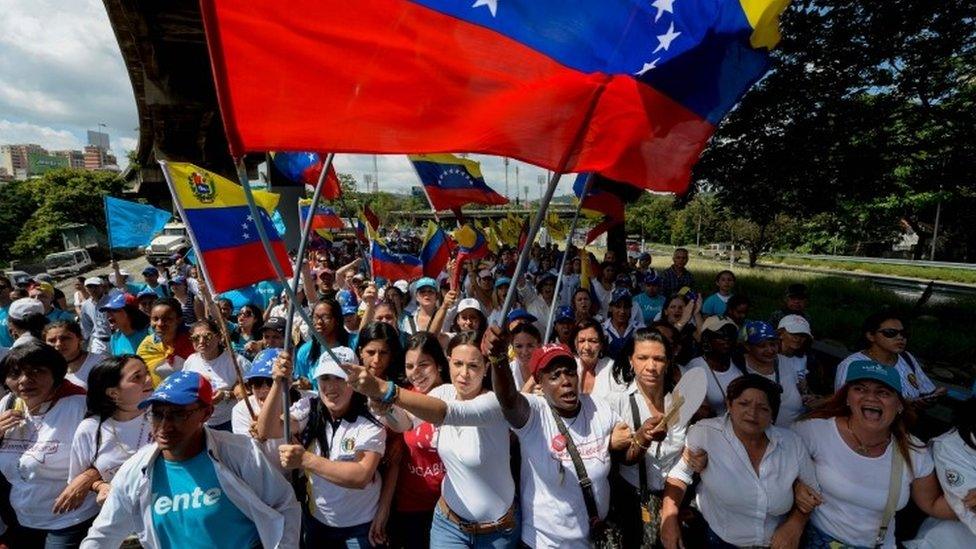
- Published21 October 2016
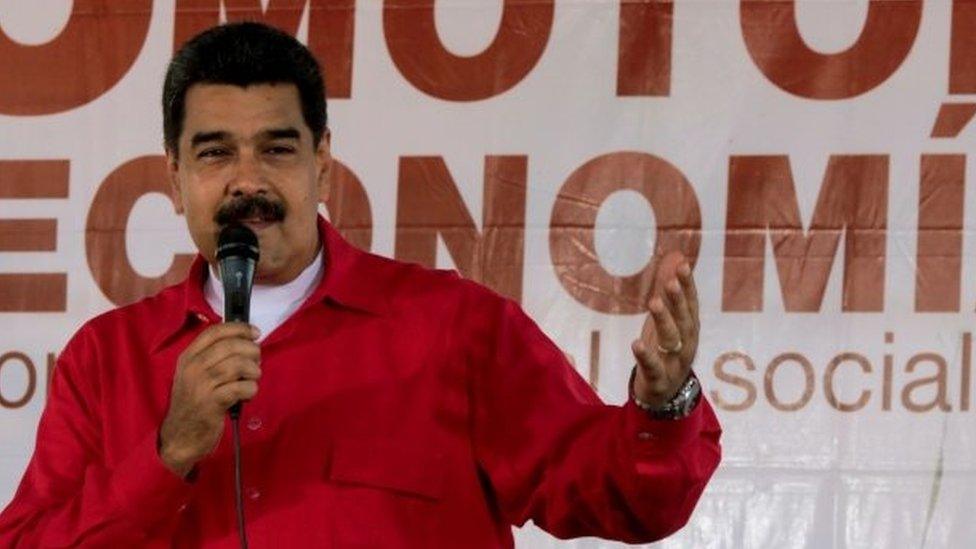
- Published19 October 2016
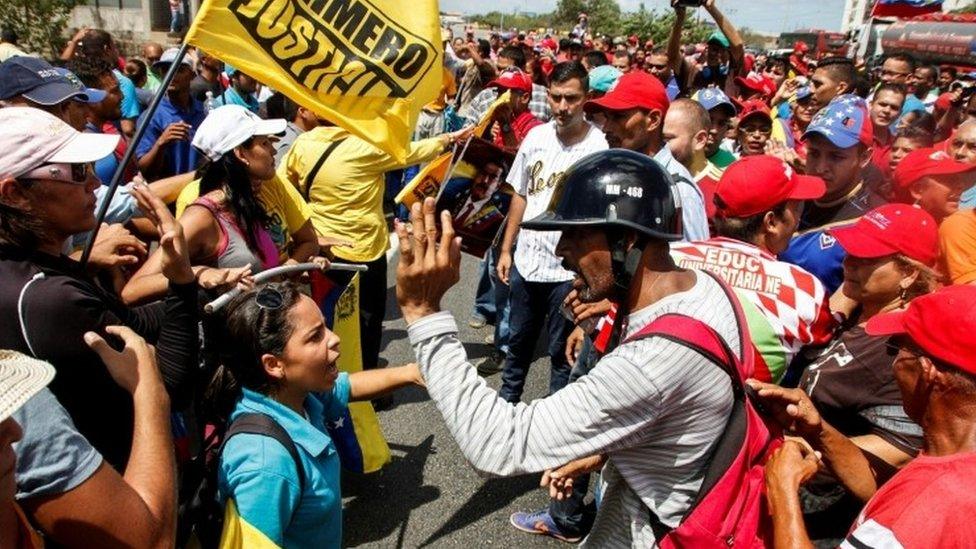
- Published18 October 2016
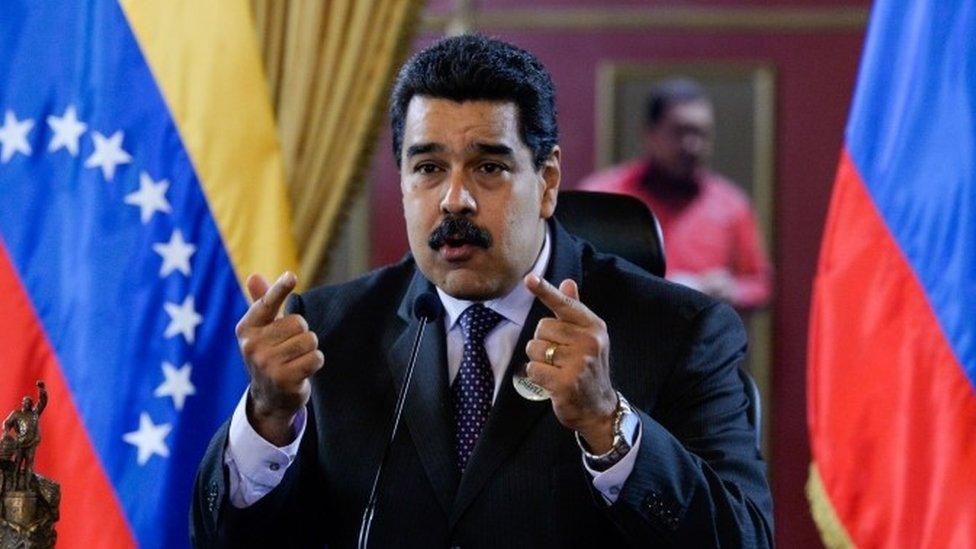
- Published7 October 2016
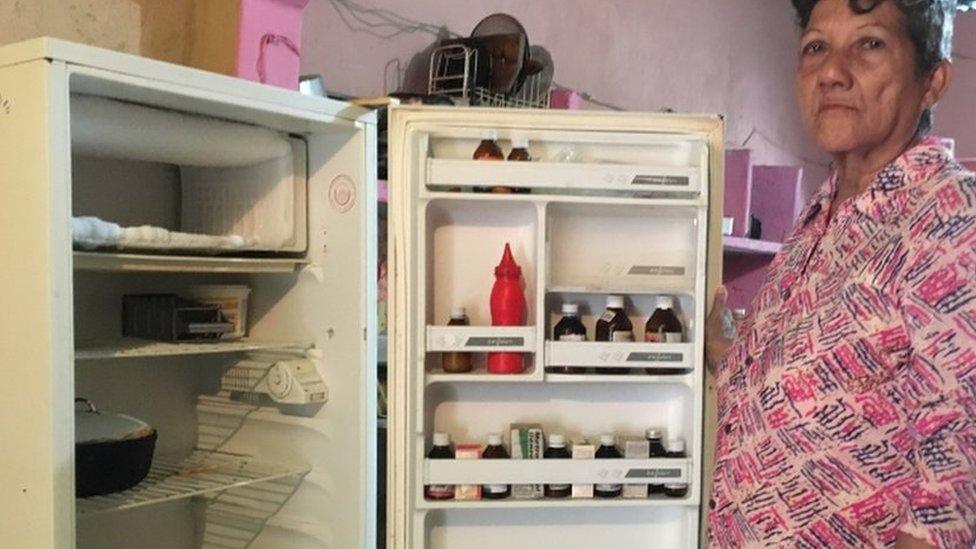
- Published9 October 2016
